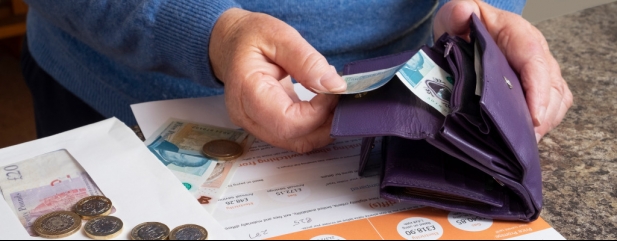Archived article
Please note that tax, investment, pension and ISA rules can change and the information and any views contained in this article may now be inaccurate.
My bills are going up, should I dip into my Lifetime ISA?

I’m expecting my energy bills to go up by about £1,000 which means my emergency fund no longer covers six months’ fixed expenses.
I’m thinking of accessing £1,000 from my Lifetime ISA early to top up my emergency fund, but in doing so I’d pay a 25% charge.
Is it worth holding off for a bit just in case the Government reduces the early withdrawal charge?
Jason
Tom Selby, AJ Bell Head of Retirement Policy says:
Building a decent-sized ‘rainy-day’ savings pot is a cornerstone of sound financial planning. This pot of money should ideally be held in an easy access cash account paying the highest rate of interest available.
While clearly during periods of high inflation the real value of that money will be eroded, it is important to have some cash to cover any unexpected bills. Aiming for three to six months’ fixed expenses is sensible.
Millions of Brits have seen their living costs driven higher this year, primarily by surging energy bills caused by global supply and demand issues and exacerbated by the war in Ukraine.
As energy is a fixed expense the recent rise in costs means it makes sense to review your rainy-day pot to make sure it remains sufficient.
The average annual energy bill (for those on the price cap) increased £693 to almost £2,000 in April, with another £800 increase anticipated in October.
If your annual energy costs go up by £1,000 and you want to maintain a buffer covering six months’ fixed expenses, that implies adding around £500 to your rainy-day pot.
Anyone aged 18 to 39 can open a Lifetime ISA and pay in up to £4,000 a year. This money will then be topped up by a 25% government bonus, up to a maximum of £1,000 a year.
Once you have opened an account you can keep subscribing and receiving the Government bonus until your 50th birthday. The money can be accessed tax-free where it is used for a first home worth £450,000 or less, from your 60th birthday or in serious ill-health.
In all other circumstances your withdrawal will be subject to a 25% early withdrawal charge. Because this is applied to the entire withdrawal, it not only aims to reclaim the upfront bonus but acts as a 6.25% penalty too.
During the pandemic the Treasury cut this charge from 25% to 20%, meaning it was only aiming to return the government bonus.
There have been calls for ministers to provide similar support during the cost-of-living crisis but so far there has been no indication this will happen.
Given the impact of the early withdrawal charge, if you want to top up your rainy-day fund, consider doing it from other assets, such as a Stocks and Shares ISA, or from your salary if you can afford it.
Important information:
These articles are provided by Shares magazine which is published by AJ Bell Media, a part of AJ Bell. Shares is not written by AJ Bell.
Shares is provided for your general information and use and is not a personal recommendation to invest. It is not intended to be relied upon by you in making or not making any investment decisions. The investments referred to in these articles will not be suitable for all investors. If in doubt please seek appropriate independent financial advice.
Investors acting on the information in these articles do so at their own risk and AJ Bell Media and its staff do not accept liability for losses suffered by investors as a result of their investment decisions.
Issue contents
Education
Funds
Great Ideas
- Fulham Shore is navigating cost pressures well and continues to expand
- Buy shares in Photo-Me for its underappreciated earnings potential
- Watches of Switzerland's shares have fallen too far, buy them now
- Don't worry about slowing orders at Chemring as it looks well placed
- Cheniere Energy outperforms the global stock market
- Still plenty of reasons to want to invest in this property expert
News
- Apple’s push into advertising poses challenges for Meta, Alphabet and Snap
- Airline shares dive amid prospect of high compensation costs
- Why shares in Primark parent Associated British Foods are languishing near five-year lows
- How decades high US inflation and new ECB direction are leading to market turmoil

 magazine
magazine








